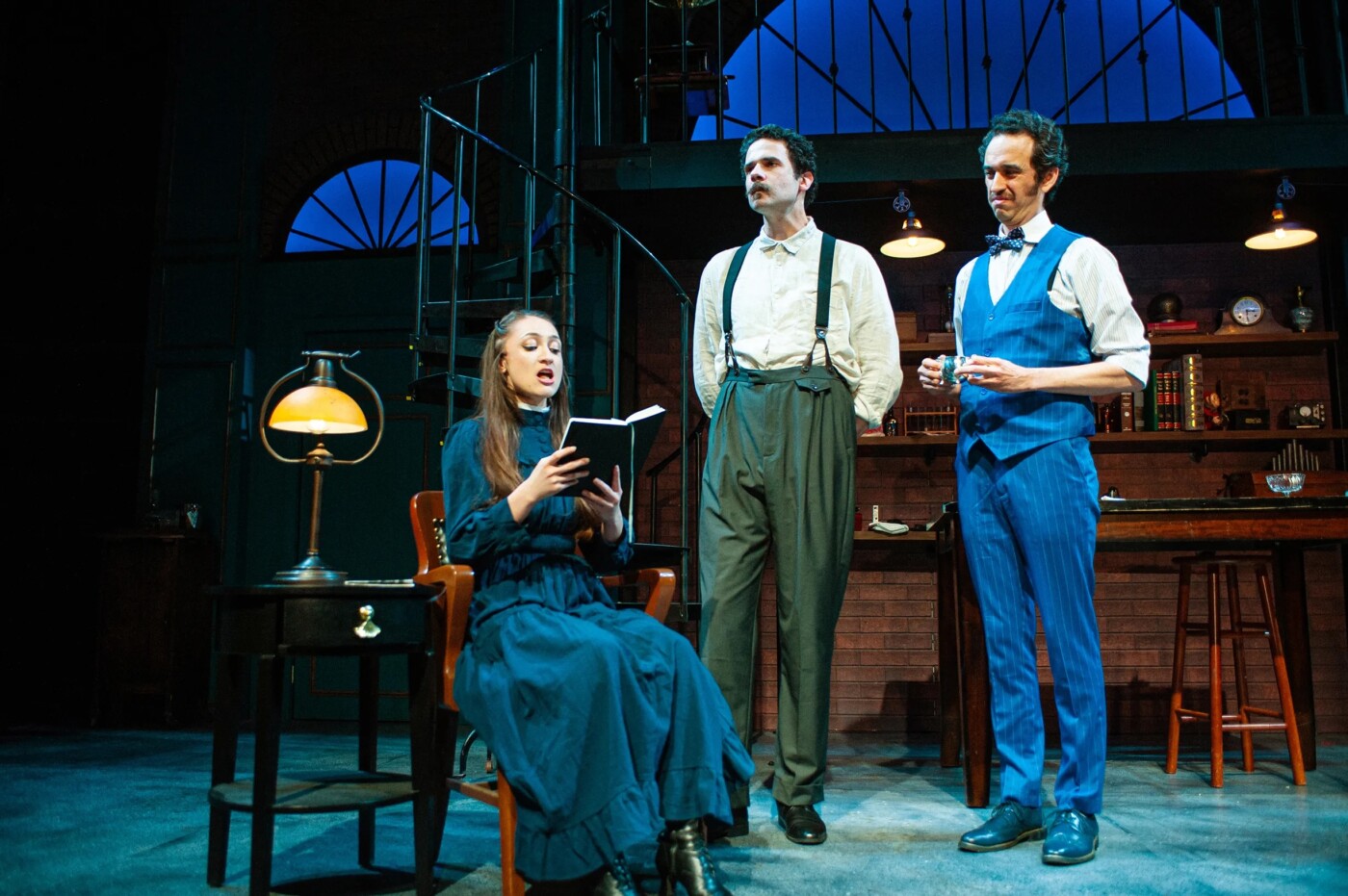Forget the simmering romance that you might think of when you remember the 1964 movie musical “My Fair Lady.” Think instead of “Pygmalion.”
San Francisco Playhouse’s altogether delightful current production, while complete with Lerner and Loewe’s familiar songs, takes its gravitas not from Hollywood but from George Bernard Shaw’s original play and the 1938 movie version that followed.
You know the story: Professor Henry Higgins makes a bargain with colleague Col. Pickering that he can take a raggedy street girl—Eliza Doolittle, whom he encounters selling flowers in Covent Garden—and transform her, basically move her up a few classes, by turning her screechy Cockney into the dulcet tones of a duchess.
We watch Eliza grow into a lady, we follow her relationships with the three men in her new life (that includes the lovelorn Freddy) and we see how confirmed bachelor Henry Higgins is ultimately changed by his interaction with her.

The large-cast play is a treat for all the senses: songs accompanied by a small backstage orchestra (music direction by Dave Dobrusky); a big, impressive rotating set (designed by Nina Ball); terrific performances both comic and emotional; a few great singing voices (including Jillian A. Smith’s pure soprano as Eliza and Nicholas Tabora’s wistful “On the Street Where You Live” as the smitten Freddy); and Abra Berman’s dazzling period costumes. The gigantic hats themselves are a visual feast—one resembles a water vessel.
Director (and theater founder/artistic director) Bill English remarks in program notes that he sees the main characters—volatile Eliza; “troubled genius” (as English calls him) Henry Higgins (a pleasingly low-key, likably clueless Adam Magill); and Colonel Pickering (Brady Morales-Woolery, seen here as covertly, and charmingly, gay) — as comprising a “complicated asexual menage.”
English’s focus is on Eliza, and Smith easily accesses a full range of emotions, through song, dialogue and movement, to explore her character’s complex journey.

Critiques of class, the plight of the poor, attitudes toward women and turn-of-the-century British society are all part of Shaw’s serious, ongoing theatrical explorations (he wrote more than 60 plays), but comic characters abound in his work, and here we have one of the best, the funniest of them all: Eliza’s father, Alfred Doolittle, who refers to himself as “one of the undeserving poor” and says he’s been called an “original moralist.” Jomar Tagatac’s cheerfully drunken, singing, dancing and prancing Doolittle (tight, intricate choreography throughout the show by Nicole Helfer) might very well be the best Doolittle ever. His “Get Me to the Church on Time,” performed with the chorus, simply dazzles.
And the scene of preternaturally rigid upper-class twits at the racetrack—into which the almost-but-not-quite-transfigured Eliza cheerfully bumbles—is simply a masterpiece of scenic direction.
Wait for the ending —it might surprise you, but it’s exactly right.
“My Fair Lady” continues through Sept. 13 at San Francisco Playhouse, 450 Post St., San Francisco. Tickets are $52-$135 at sfplayhouse.org.
The post Review: SF Playhouse’s delightful, Shaw-forward ‘My Fair Lady’ a treat for all the senses appeared first on Local News Matters.
